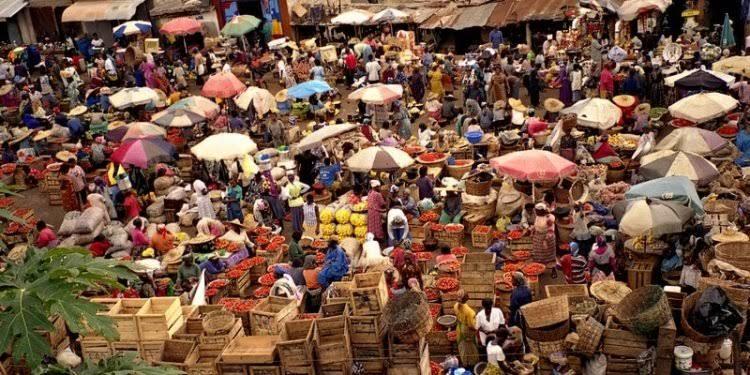Yobe State, situated in the northeastern part of Nigeria, is a region that thrives on agriculture, livestock trading, and community commerce. Despite being in the arid Sahelian zone, Yobe has developed an impressive network of local markets that form the heartbeat of its economy and social life. These markets, scattered across its 17 Local Government Areas (LGAs), are vibrant spaces where traders, farmers, artisans, and consumers come together to exchange goods, services, and culture.
In this blog post, we’ll take you on an enlightening tour through Yobe State's major local markets, their precise locations, unique offerings, and why they are central to the lives of millions in the region.
1. Potiskum Cattle Market – Potiskum LGA
Location: Potiskum Town, Potiskum LGA
Specialty: Livestock (cattle, sheep, goats, camels)
Potiskum Cattle Market is not just the largest in Yobe State—it’s the largest livestock market in West Africa. Operating primarily on Mondays, this market draws in traders from all over Nigeria and neighboring countries like Niger, Cameroon, and Chad. If you are in the cattle business, this is where deals are sealed in hundreds and thousands.
2. Nguru Central Market – Nguru LGA
Location: Nguru Town, Nguru LGA
Specialty: Grains, textiles, livestock, spices
Nguru Market plays a vital role in the trade of grains such as millet, maize, and sorghum. Its proximity to Niger Republic also facilitates international trade. Thursdays are the main market days, and it's a place where buyers get quality produce at affordable prices.
3. Gashua Market – Bade LGA
Location: Gashua, Bade LGA
Specialty: Agricultural produce, livestock, fabrics
Gashua Market is a commercial hub known for agricultural products and livestock. It services the Bade LGA and surrounding towns, making it one of the region’s busiest trade centers. Saturdays and Tuesdays are peak days.
4. Damaturu Central Market – Damaturu LGA
Location: Along Gashua Road, Damaturu
Specialty: General goods, electronics, clothing, fresh produce
As the capital of Yobe State, Damaturu hosts a diverse central market offering everything from electronics to vegetables. It's a daily market, but traffic peaks on Wednesdays and Fridays.
5. Geidam Market – Geidam LGA
Location: Geidam Town, Geidam LGA
Specialty: Agricultural goods, livestock, fish, salt
Geidam Market plays a dual role: local and international. Its border proximity allows trade flow from Niger, boosting the market's scale. Fish and salt from Lake Chad make this market distinct.
6. Machina Market – Machina LGA
Location: Machina Town, near the Niger border
Specialty: Grains, camels, local crafts
Known for camel trading, Machina Market also thrives in local crafts and pottery. It's a major hub for the Machina Emirate and draws traders from as far as Agadez in Niger.
7. Babbangida Market – Tarmuwa LGA
Location: Babbangida Town
Specialty: Household items, foodstuff, local drinks
This market may be smaller than others, but it serves an essential role in Tarmuwa's economy. Thursdays are key trading days, and you’ll find everything from dried fish to native grains.
8. Fika Market – Fika LGA
Location: Fika Town
Specialty: Grains, vegetables, livestock
Fika Market is integral to the southern region of Yobe. It acts as a bridge for trade between Bauchi and Yobe states. Tuesdays and Saturdays are market days.
9. Gujba Market – Gujba LGA
Location: Gujba Town
Specialty: Tubers, vegetables, livestock
Though the area has experienced insurgency disruptions, Gujba Market continues to serve local farmers and consumers. Its resilience has made it a symbol of economic recovery.
10. Goniri Market – Gujba LGA
Location: Goniri Village
Specialty: Yam, pepper, maize
A smaller rural market, Goniri offers organic produce and connects remote farming communities to buyers from Damaturu and beyond. It operates primarily on Mondays.
11. Yusufari Market – Yusufari LGA
Location: Yusufari Town
Specialty: Dried fish, camel milk, livestock
Due to its proximity to desert regions, Yusufari Market is known for camel milk and dried fish from surrounding water bodies. It’s a niche market with cultural richness.
12. Nangere Market – Nangere LGA
Location: Sabon Gari, Nangere
Specialty: Grains, onions, spices
Strategically located on the road to Potiskum, Nangere Market specializes in onions and other spices. Market days are Saturdays, and it is essential for both retail and bulk buyers.
13. Jakusko Market – Jakusko LGA
Location: Jakusko Town
Specialty: Local beans, palm oil, livestock
A rich blend of agro produce and livestock defines Jakusko Market. It’s an essential distribution point for the northeastern corridor of Yobe.
14. Fune Market – Fune LGA
Location: Ngelzarma Town
Specialty: Yams, tomatoes, onions
Fune Market supports many of the smaller villages in the southern half of the state. Its strong ties with Bauchi State also make it a regional favorite.
15. Yunusari Market – Yunusari LGA
Location: Kanamma
Specialty: Groundnuts, grains, livestock
Situated in a border LGA, Yunusari Market fosters inter-state trade. Its Friday market draws Fulani pastoralists and Hausa grain traders.
16. Gulani Market – Gulani LGA
Location: Bara Town
Specialty: Shea butter, tubers, herbs
This market in southern Yobe features herbal medicines and shea butter, appealing to both traditional and modern customers. It operates on Tuesdays and Saturdays.
17. Ngalda Market – Fika LGA
Location: Ngalda Town, along Potiskum-Gombe Highway
Specialty: Dry fish, vegetables, grains
Ngalda Market is a stopover for many interstate travelers, making it a bustling trade point. Its variety in dried food items sets it apart.
The Importance of Local Markets in Yobe
Yobe State’s local markets serve as vital lifelines for food distribution, cultural exchange, and economic growth. They link urban areas to rural producers and enable trade beyond Nigeria’s borders. In a state often defined by hardship, these markets are a beacon of resilience and economic ingenuity.
Final Thoughts
Whether you are a trader, a visitor, or a policy planner, understanding Yobe’s local market network is crucial to appreciating the state’s socio-economic fabric. These markets are more than trading spots—they are economic engines, social hubs, and cultural melting pots.
If you're looking to invest in agro-processing, logistics, or retail in northeastern Nigeria, Yobe’s markets offer vast, untapped potential.

















